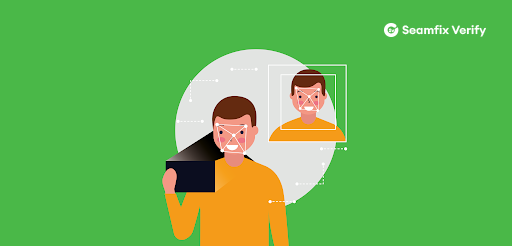Instead of struggling to remember passwords, I prefer a simple tap on a button that enables my phone to scan my face and grant me access to an application. Facial recognition technology makes this a reality, enabling identity verification as quickly as a glance.
Thankfully, millions of businesses are embracing this technology as it elevates their customer experience to new heights with the ability to swiftly and securely verify identities, offer personalized services, and foster deeper connections with their customer base.
For example, telecom giant MTN uses our face match service to register customers in Africa onsite and in the field, combatting identity fraud and complying with regulatory standards.
This article will provide a comprehensive guide on leveraging it to enhance your customer experience, security, and overall business growth.
What is Face Recognition?
Face recognition is a biometric technology that uses facial features to identify and authenticate individuals. It captures an image or video of a person’s face, which is then transformed into a unique digital representation called a face template. This template includes important facial landmarks and characteristics.
The face template is compared to a database of stored templates to verify someone’s identity. Complex mathematical calculations are used to determine if there is a match. If a match is found, the person’s identity is confirmed, allowing access to a service or location.
For example, consider a smartphone that utilizes face recognition to unlock itself. When the user looks at the phone’s camera, the technology compares their face to the stored template. If there is a match, the phone unlocks, providing users access to their apps and data.
If all this sounds complicated like Mumbo Jumbo, identity verification partners like Seamfix Verify make the process a breeze on the backend so that you can recognize and verify your customer’s identity easily and in seconds.
Implementing Face Recognition for Your Business: A Step-by-Step Guide
Step 1: Assess Your Business Needs
Start by identifying the pain points in your customer experience journey. For example, if your online onboarding process requires manual document submission, it can be time-consuming and cumbersome for customers.
Case in point: the banking sector, where traditional authentication methods like passwords or PINs can be vulnerable to security breaches. By integrating facial recognition, customers can securely access their accounts with a simple face scan as you compare their facial details to a database of stored templates like a national ID card to verify the user’s identity.
Step 2: Choose the Integration Method
Decide whether you want to utilize the facial recognition service through our user-friendly web portal for individual checks or integrate it directly into your existing systems for multiple reviews using the provided API by copying and pasting our documentation. It’s that easy.
Our API integration allows for seamless incorporation into your applications, while our web portal offers an intuitive interface for businesses with limited technical expertise. Our dedicated support team is available to guide you throughout the entire process.
Step 3: Understand the Key Features
Familiarize yourself with the key features of our facial recognition service. For instance, with Liveness detection, you can scan a person’s facial features in real time to ensure that they are genuine and prevent fraud.
Background cleanup removes distractions or noise from the captured image, ensuring accurate recognition. Face match compares the captured face with stored templates or databases for verification or identification purposes.
We have a detailed guide for each service in our blog section.

Step 4: Implement and Test the Integration
Our system can securely capture and process facial data on the web or mobile. So, thoroughly test the integration to validate its performance, accuracy, and security.
You can collaborate with our development team to implement the necessary functionalities required for your business.
Bonus Step: Communicate and Educate Customers
Transparently communicate the benefits and features of facial recognition to your customers. Provide clear instructions and guidelines on facial recognition for improved convenience and security.
Offer educational resources like video tutorials or FAQs to help users quickly understand and adopt the new technology.
For example, Create an in-app video tutorial demonstrating how customers can take selfies to verify their identity.
Get started with Facial Recognition
By following this guide and leveraging our facial recognition service, businesses can significantly enhance the customer experience.
Whether simplifying onboarding, securing access to accounts, or providing personalized interactions, facial recognition technology can help you create remarkable customer experiences. Sign up on our platform for free to see how it works!








